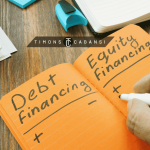Real estate investing

The Stoic Flipper
Let’s face it: flipping houses in the Philippines is like riding a rollercoaster blindfolded. One minute, you’re on top of the world, closing a deal that nets you a fat profit. The next, you’re knee-deep in renovation woes, wondering why you ever thought this was a good idea.

Bonsai Philosophy in Real Estate
Imagine this: You’re sitting in your backyard in Quezon City, sipping kape while admiring your bonsai tree. It’s tiny, delicate, and took years of patience and care to grow. But now, it’s a masterpiece—a living testament to the power of small, consistent efforts over time.

Real Estate and Personal Finance
Let’s talk about something that makes most people break out in a cold sweat: debt. In the Philippines, where the dream of owning a home is as big as the traffic in EDSA, debt is often seen as the necessary evil to achieve that dream. But here’s the kicker: not all debt is bad. In fact, when managed wisely, debt can be a powerful tool for building wealth—especially in real estate.

How to Use Personal Finance Tools to Track Your Real Estate Investments
Imagine this: You’ve just closed your third real estate deal. You’re feeling like a bona fide property mogul, but there’s just one problem—your finances are a mess. Rent payments are scattered across different bank accounts, expenses are piling up, and you’re not even sure if you’re making a profit. Sounds familiar? I was there before.

The Stoic Investor
Imagine this: You’ve just closed a deal on what you thought was the perfect property. The location is prime, the price is right, and you’re already dreaming of the passive income rolling in. But then—plot twist—the market slumps, or worse, the property turns out to be a money pit. Cue the dramatic teleserye music.

Bonsai and Real Estate
Imagine this: A tiny bonsai tree, meticulously pruned and shaped over decades, stands as a testament to patience, care, and long-term vision. Imagine a real estate portfolio carefully cultivated over years, growing in value and generating steady income.

Real Estate as a Retirement Plan
Picture this: You’re sitting on the porch of your dream home, sipping coffee as the sun rises over a serene landscape. You real estate bank loan is paid off, the rental income is rolling in, and you’re living the retirement you’ve always dreamed of. Sounds too good to be true? It’s not.

The Hidden Costs of Real Estate Investing
So, you’ve finally decided to take the plunge into real estate investing. You’ve found the perfect property, crunched the numbers, and are ready to make your move. But wait—have you accounted for all the costs?

How to Use Stoic Principles to Make Smarter Real Estate Decisions
Imagine this: You’ve found the perfect property—a prime location, great price, and endless potential. But just as you’re about to close the deal, the market takes a nosedive. Panic sets in. Should you back out? Push through? Or wait for the storm to pass?
